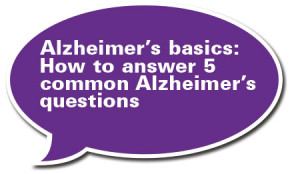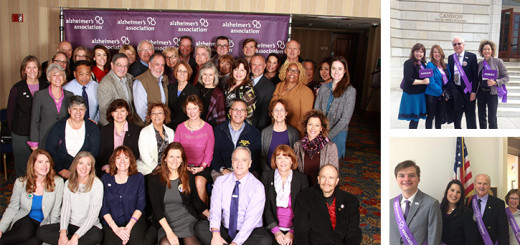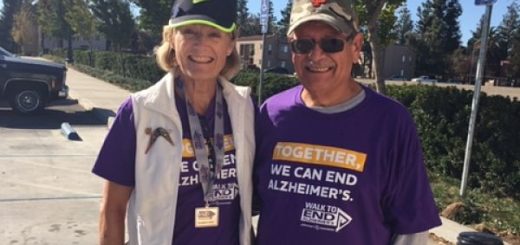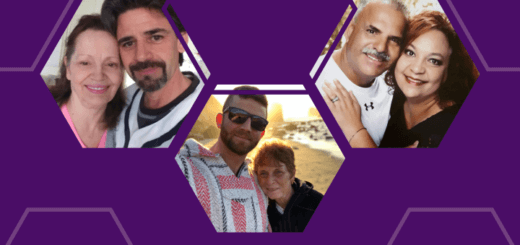Alzheimer’s basics: How to answer 5 common Alzheimer’s questions
What is the difference between Alzheimer’s and dementia?
 Dementia is not a specific disease. It’s a broad term that describes a wide range of symptoms, including memory loss or thinking problems that are severe enough to interfere with daily life. Many conditions can cause dementia symptoms, including some that are reversible, such as thyroid problems and vitamin deficiencies. Alzheimer’s disease is the most common form of dementia, accounting for 60 to 80 percent of dementia cases. Alzheimer’s is progressive, which means the symptoms will worsen over time. There is no cure for Alzheimer’s and it’s the sixth leading cause of death in the U.S.
Dementia is not a specific disease. It’s a broad term that describes a wide range of symptoms, including memory loss or thinking problems that are severe enough to interfere with daily life. Many conditions can cause dementia symptoms, including some that are reversible, such as thyroid problems and vitamin deficiencies. Alzheimer’s disease is the most common form of dementia, accounting for 60 to 80 percent of dementia cases. Alzheimer’s is progressive, which means the symptoms will worsen over time. There is no cure for Alzheimer’s and it’s the sixth leading cause of death in the U.S.
If my Grandma has Alzheimer’s, does that mean I will get it?
Not necessarily. While it’s true that those who have an immediate family member with Alzheimer’s are more likely to develop the disease, there are many factors that contribute to whether or not someone gets the disease. Even people with high risk of Alzheimer’s may never get the disease and conversely, people who have low risk may get the disease.
What causes Alzheimer’s?
We are not yet sure of the exact cause of Alzheimer’s, but two abnormal structures called plaques and tangles are prime suspects in damaging and killing nerve cells in the brain. Plaques are deposits of a protein fragment called beta-amyloid that build up in the spaces between nerve cells. Tangles are twisted fibers of another protein called tau that build up inside cells.
How do you know if someone has Alzheimer’s disease?
Cognitive changes that disrupt daily life may be a symptom of Alzheimer’s or another dementia. The Alzheimer’s Association lists 10 warning signs and symptoms of Alzheimer’s. Every individual may experience one or more signs in different degrees. It’s important to remember that, while memory loss is a very common symptom of Alzheimer’s disease, other changes, such as decreased judgment, mood and personality changes or visual/spatial difficulties might be indications of Alzheimer’s. You can find the 10 Signs at www.alz.org/10signs or call the Alzheimer’s Association any time, day or night at 800.272.3900.
How do people die from Alzheimer’s?
It’s a difficult topic to cover, but a very common question. In the latest stages of Alzheimer’s, people with the disease may lose the control over basic bodily functions, including the ability to walk, swallow, toilet, talk and breathe. Alzheimer’s causes people to become extremely susceptible to infections, such as pneumonia and malnutrition or dehydration is common. People with Alzheimer’s often die of these or other related complications.


















Is Alzheimer’s generally considered to be increasing, or is it just that it is being diagnosed more?
Both…with a record number of people reaching the age of highest risk, we’re definitely seeing more Alzheimer’s; AND as diagnosis gets better, we’re able to diagnose earlier and more accurately in more people.
I greatly appreciate the information and assistance which the Alzheimer’s Association provides. As the spouse of an Alzheimer’s patient, I can attest to the cause of death. In my husband’s case, it was sepsis & aspiration pneumonia, caused by difficulty in swallowing. He also suffered from dehydration. It is truly a “long journey.” My advice to caregivers would be:
1. take care of yourself; if you don’t, you will become ill and unable to look after your loved one (I didn’t believe this until I almost died myself.) You may need to find a counselor to whom to express your fears, anxieties and frustration.
2. get into a support group; you will gain information as to what you may encounter as the disease progresses and also find encouragement from the support of others who are also struggling.
3, remember that the patient is feeling the effects of the disease, too. He or she will be confused, frustrated, angry and fearful. My husband was an extremely intelligent man and I needed to reassure him that his difficulties were due to the disease and not because he was “dumb.”
4. do things together that will involve cognitive skills (as long as you can.) We used to watch old TV game shows, play along with the contestants and laugh at their antics. You can encourage involvement with outdoor activities, including gardening, walking, bird watching, etc.
5. above all, remind the patient that he or she is still loved and that you care!
Think it is good to establish the difference between Alzheimer’s and Dementia as people often use the terms interchangeably.